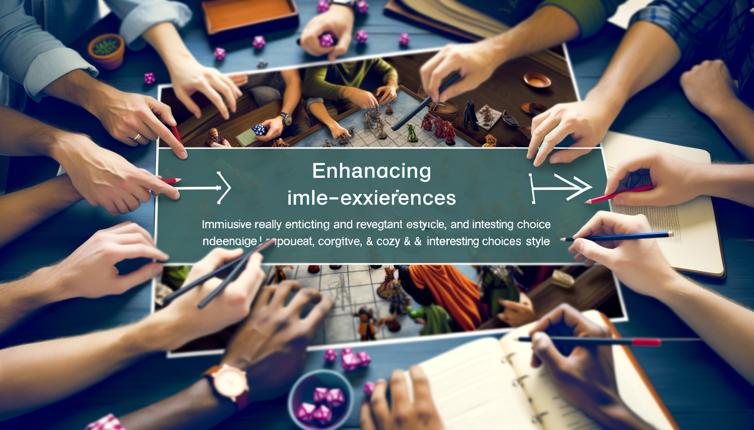1. Develop Dynamic Characters
One of the key aspects of a captivating RPG experience is the development of dynamic and memorable characters. Players should feel a connection to the characters they control and interact with. To achieve this, invest time in creating well-rounded personalities, unique backstories, and compelling motivations for each character in your game.,Consider providing meaningful choices that allow players to shape the development and relationships of their characters. This can create a sense of agency and personal investment in the game's world, leading to a more engaging experience.
2. Create a Rich and Immersive World
An engaging RPG experience often revolves around a rich and immersive world for players to explore. Take the time to craft detailed descriptions of locations, cultures, and histories within your game. Implement diverse environments, including bustling cities, treacherous dungeons, serene forests, and vast landscapes.,Consider adding interactive elements to the environment, such as hidden treasures, non-playable characters with unique dialogues, and interactive objects that reveal more about the world's lore. These elements create a sense of discovery and encourage players to actively explore their surroundings.
3. Incorporate Meaningful Choices and Consequences
Meaningful choices and consequences can significantly enhance the engagement level of an RPG. Give players the freedom to make decisions that impact the storyline, character relationships, and the game world itself.,Ensure that these choices have tangible consequences, both immediate and long-term. This can include branching storylines, altered NPC reactions, and changes in the game's environment. By allowing players to shape their own experience, you provide them with a sense of agency and investment in the game's outcome.
4. Engage Players with Challenging Gameplay
Engaging gameplay is essential to keep players invested in your RPG. Strike a balance between challenge and reward, providing players with both achievable goals and satisfying victories.,Introduce a variety of gameplay mechanics, such as strategic combat systems, puzzle-solving elements, and skill-based interactions. This will keep players actively engaged and prevent the game from becoming monotonous or predictable.,Consider incorporating optional side quests or hidden challenges that offer additional rewards and encourage players to explore and experiment with different strategies.
5. Foster a Sense of Community and Collaboration
RPGs are often enjoyed by a community of players who share a passion for immersive storytelling. Encourage collaboration and interaction among players by implementing multiplayer features, such as cooperative gameplay or PvP elements.,Include social hubs within your game where players can connect, trade items, and share their experiences. This fosters a sense of belonging and encourages players to engage with the game on a deeper level.,Additionally, consider incorporating player feedback into future updates and expansions. This shows that you value the input of your community and can lead to a more inclusive and player-driven experience.
Conclusion
By implementing these five strategies, you can create a more engaging role-playing game experience for your players. Remember to focus on developing dynamic characters, crafting a rich and immersive world, incorporating meaningful choices and consequences, providing challenging gameplay, and fostering a sense of community and collaboration. With these elements in place, your RPG will capture the hearts and minds of players, offering an unforgettable adventure that will keep them coming back for more.









